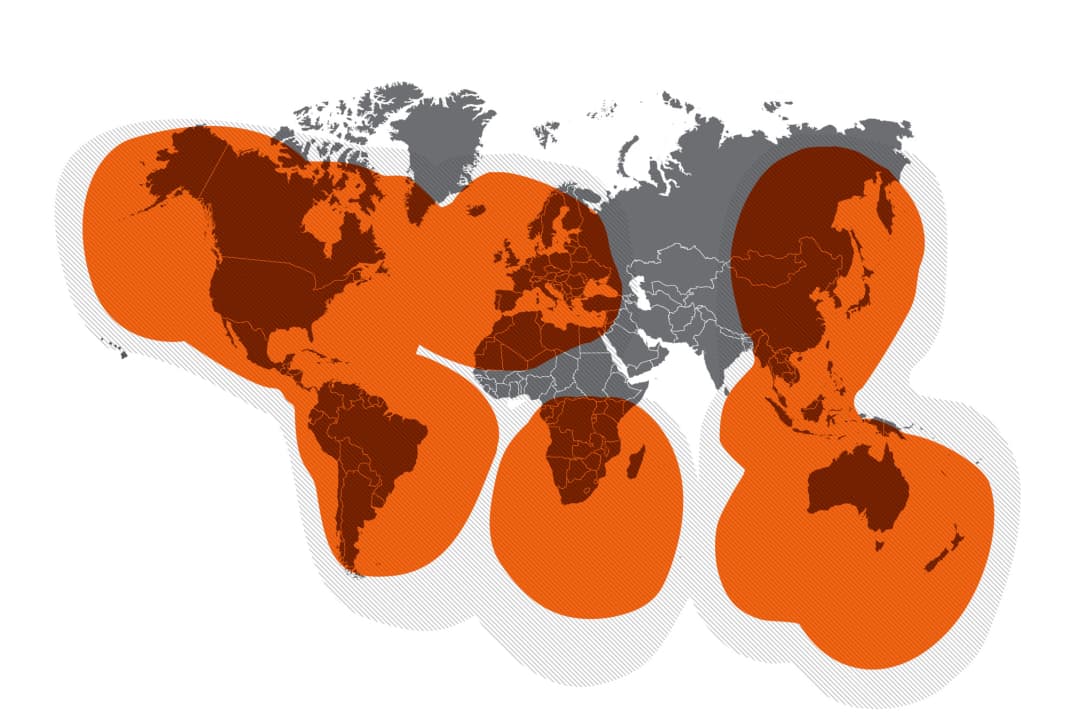Iridium, Starlink, Inmarsat: On-board satellite communication - and the alternatives
Johannes Erdmann
· 26.04.2023

In this article:
Anyone boating in coastal waters is unlikely to need more equipment for daily communication, weather reports and, in the worst case scenario, an emergency message than the smartphone that is already in their trouser pocket. Because even when land is no longer visible on the horizon, the mobile phone often still has two reception bars.
However, as soon as the ship leaves the transmission range of the mobile phone masts, the crew will have no choice but to think about further communication options. Then the systems that hover above you in their orbit come into question as transmitting and receiving stations: the satellites.
Until a few years ago, there were only a few affordable satellite phones, which were also only developed for use in the desert and quickly lost contact at sea without a self-tracking antenna. Then the first satellite mobile phones appeared, with the dimensions of a "portable phone box", the menu navigation of a 90s mobile phone and their robust appearance, they had a certain expedition character. The most popular and common phone was the Motorola 9505, the 9505A version of which was even able to send e-mails via a computer interface.
But at what a price! It also required a docking station, which was plugged into the bottom of the mobile phone, then a serial cable could be connected, which in turn required an adapter to USB in order to communicate at data speeds from prehistoric times. Four plain and short text emails in, four emails out took just over a minute - and cost two euros. Tiny, blurred images (size: 100 x 100 pixels) cost around six to seven euros. In most cases, prepaid cards were used for 30 days and 70 minutes, which was exactly enough for an Atlantic crossing. If the crossing took longer than expected, the mobile phone ran out before arrival.
Inmarsat
Today, communication on long sea routes has become much easier - and navigation is much safer thanks to completely intuitive, affordable technology, as the crew can call up weather reports as small, packaged grib files at any time and several times a day. Data connections have also become faster and more reliable. Whereas a few years ago there were other providers on the market that were only partially seaworthy, today Inmarsat and Iridium have established themselves. The Inmarsat system consists of a fleet of 14 geostationary satellites positioned on the equator and regularly renewed, most of which are already active in the 5th and 6th generation. One of Inmarsat's strengths is its fast data connections.
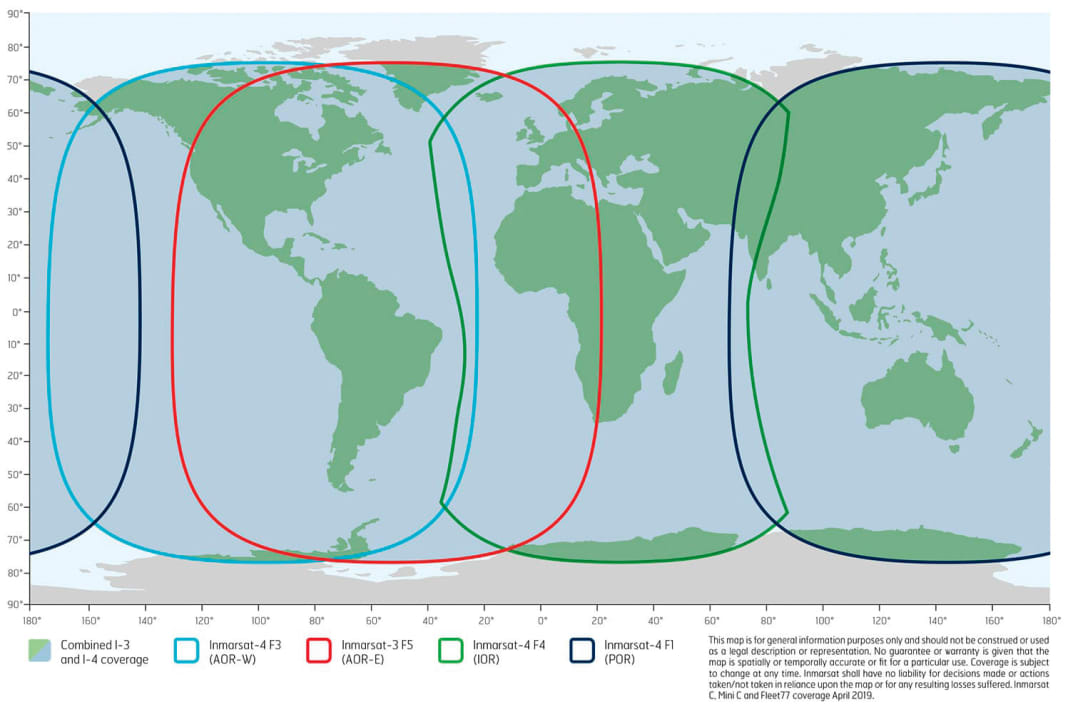




Iridium and Iridium certus
Iridium, on the other hand, operates a network of satellites that buzz around the globe and therefore offer significantly better coverage in the north and south than the market leader. A total of 66 satellites (plus replacement satellites) circle the globe on nine orbits. Iridium therefore offers coverage with almost no gaps; the system even works on the polar ice caps
In recent years, Iridium has further expanded its network and, with the new generation of satellites, created the Iridium Certus system, which is catching up in terms of data speed, but is now also somewhat more expensive than before.
Iridium is still the network of choice for circumnavigators, as the introduction of the new satellite router Iridium Go! Exec satellite router (price: 2,400 euros), use has become far more convenient and connection speeds are even 40 times faster. Just like its predecessor, the Exec router acts as an interface between the Iridium network and a standard mobile phone. Using an app, it is possible to make calls to the normal telephone network via the router, write e-mails and, for the first time, send pictures and video clips. The user is even able to surf the internet and use WhatsApp and Instagram. The prices are staggered depending on the choice of data packages. For example, a monthly package with 50 phone minutes and 50 megabytes of data usage costs 150 euros, with each megabyte costing three euros. So if you send two megabyte images, you pay just as much as before - except that the images now arrive in top quality.
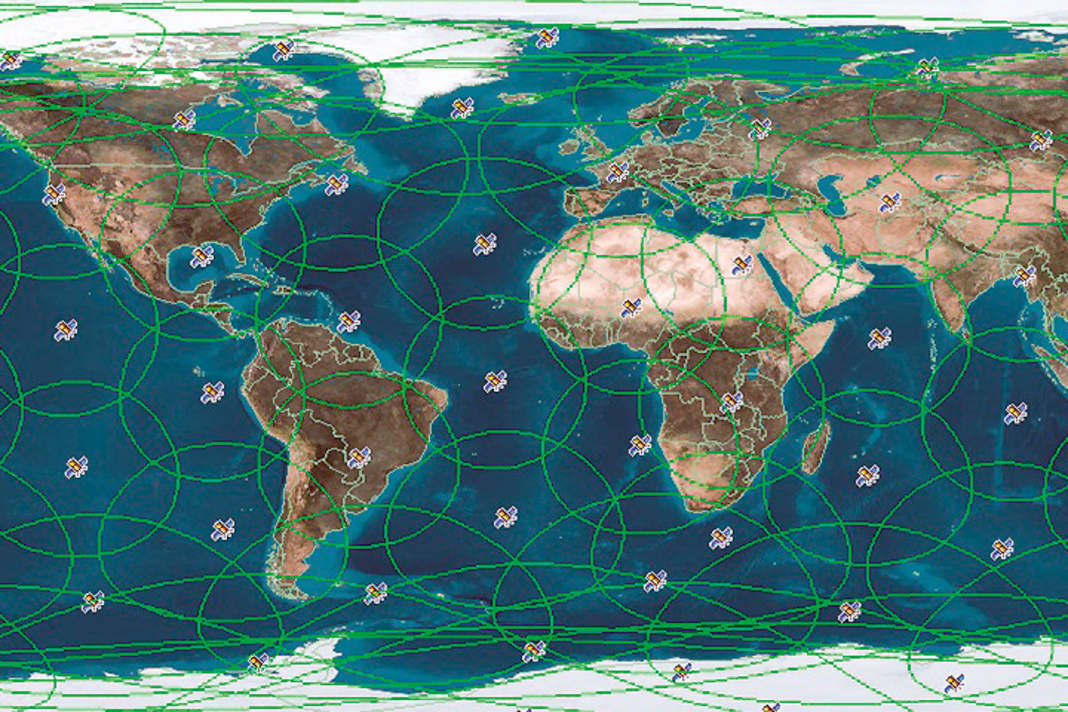





Starlink
Another new product on the market is the Starlink satellite network, which has been discussed worldwide and has become very popular for long journeys. With manageable hardware costs of 450 euros (at least when using the camper variant "Starlink Roam") and low usage costs of 100 euros per month (data flat rate), it offers the possibility of streaming video films and holding conferences at anchorages far away from civilisation, which is not yet conceivable with the other - at least the affordable - satellite systems. However, Starlink is not yet available everywhere. It is still being expanded in many places and currently covers Europe, North and South America and Australia. It is therefore not yet sufficient for travelling around the world.
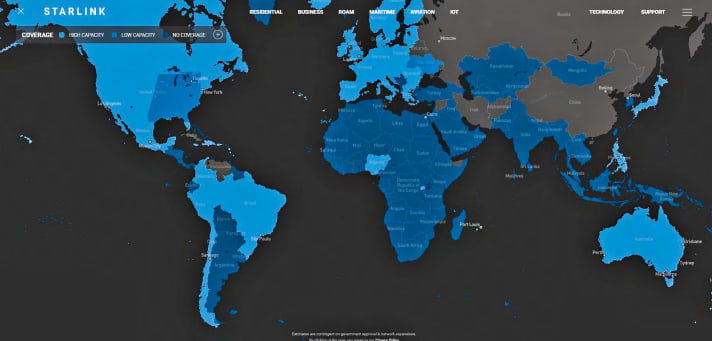
Six months ago, the Starlink network only covered certain areas of the globe - but the gaps are now getting smaller and smaller. The cheapest solution for boaters is the Starlink Roam tariff, where the hardware costs just 450 euros and the monthly fees 100 euros. However, it is not actually designed for rocking reception conditions. For maritime use, the hardware is much more expensive at around 2,800 euros, and the monthly costs start at 1,119 euros, but can be booked on a monthly basis and then paused. With transmission speeds of up to 220 megabits - not kilobits - per second, Netflix streaming and video conferencing are possible everywhere without any problems
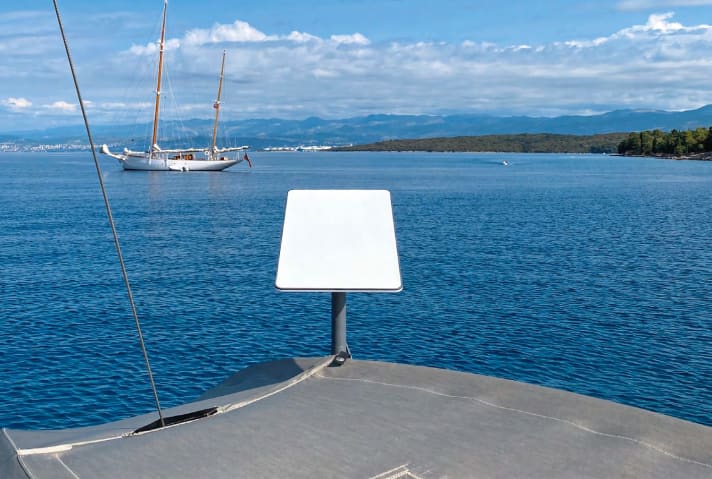
The Starlink hardware is inexpensive and can be mounted on a tube on board or inserted into a fishing rod holder. The antenna can be controlled via an app and automatically aligns itself with the satellites. With a download speed of up to 220 Mbps, it offers the best performance
Messenger and tracking systems
Those who shy away from purchasing expensive hardware may also find tracking systems to be a compact companion, but with monthly subscriptions (20 to 40 euros for Garmin InReach), the additional costs are not insignificant.
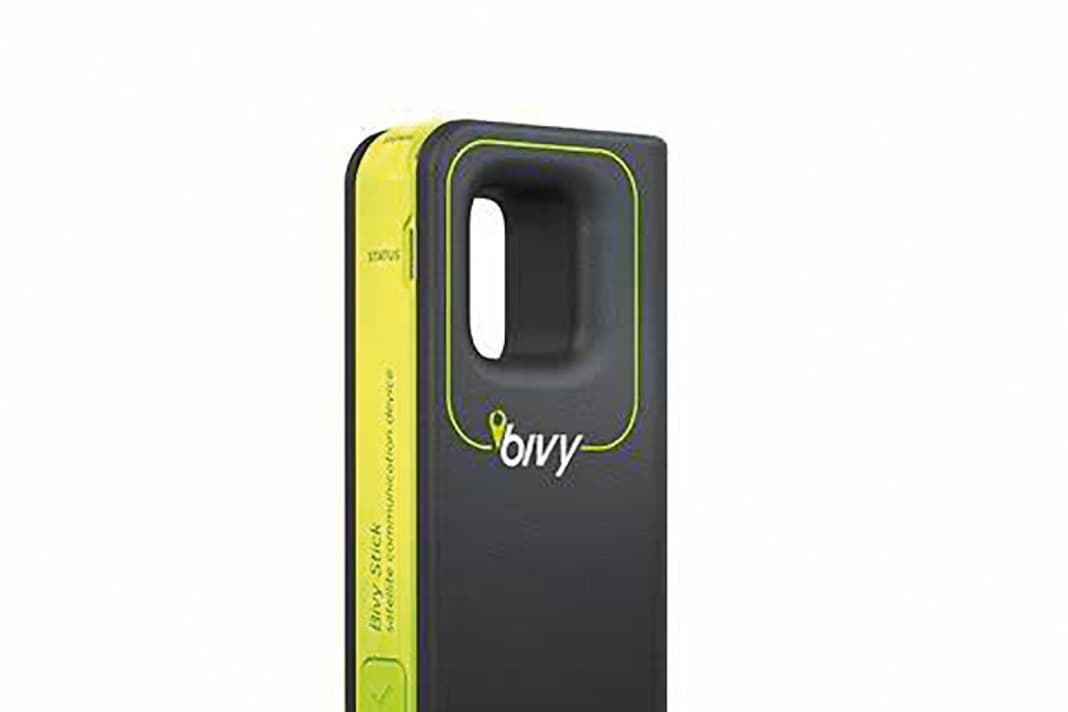





Mobile phone emergency systems
However, when it comes to having a system on board in an emergency that can be used to make emergency calls even outside the mobile phone network, a normal smartphone can also be helpful in case of doubt. The Apple iPhone 14 is already able to send emergency messages via the Globalstar satellite network, and the new Motorola Defy is also said to be able to access the satellite network. With the Galaxy S23, the manufacturer Samsung has even entered into a co-operation with Iridium. The phone should not only be able to transmit texts, but also low-resolution images. However, all these additional services are associated with additional costs.
